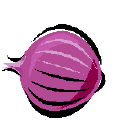|
|
|
|||||
|
|
||||||
|
||||||||||
|
Fast Growing Trees Fastest
Deciduous |
|
Faster
Deciduous |
|
Fast
Deciduous
Evergreen |
|
Fast Growing
Hedging Plants
Deciduous
Evergreen
Arborvitae
Douglas Fir |
Lore - Cures and tips
|
Gardening is an inexact science and surrounded by centuries of tradition, folklore, myth and superstition. Hidden amongst it is some age old wisdom and also some age old cobblers.
|
Connected pages Botanic Latin | Christmas | Cures and gardening tips | Trees | Vegetables / edible plants / Wild plants |
|
|
Boots and banana skins
 As these rot down
they release lots of valuable nutrients into the soil.
As these rot down
they release lots of valuable nutrients into the soil.
Bananas are supposed to be one of the nearest to "perfect foods" in that they supply lots of all we need in the right quantities, so the skins are probably good too. Bury them near roses and other established shrubs.
Leather
boots and shoes are also supposed to be good buried near trees (take
the soles off
 first if they're man-made). This would make sense in that leather
is essentially animal protein (tanned skin) and as such is high in nitrogen.
Should make a good long-term fertilizer.
first if they're man-made). This would make sense in that leather
is essentially animal protein (tanned skin) and as such is high in nitrogen.
Should make a good long-term fertilizer.
|
Problems with mice (equally as effective with other small rodents)
|
Deterring rabbits
 A liberal planting of fox gloves around a vegetable garden is
meant to guarantee a rabbit-free area (maybe its all the foxes that come around
to try the gloves on). They also have an aversion to onions, so a vegetable plot
with lots of them around will deter rabbits also.
A liberal planting of fox gloves around a vegetable garden is
meant to guarantee a rabbit-free area (maybe its all the foxes that come around
to try the gloves on). They also have an aversion to onions, so a vegetable plot
with lots of them around will deter rabbits also.
Alternatively you go down the sacrificial plant route and plant some dill in your borders to protect the vulnerable young shoots of many perennials. The idea is that the rabbits ignore the less tasty offerings and go straight for their favourite food. Not sure what happens when they go off to fetch their mates though.
While on the subject of onions;
 Rub wasp stings with raw onions to cure them. –
Culpepper’s Complete Herbal and English Physician 1653.
Rub wasp stings with raw onions to cure them. –
Culpepper’s Complete Herbal and English Physician 1653.
Onions were thought to absorb and destroy impurities because in the plague of 1666 and cholera outbreak of 1849, onion sellers were thought to be immune to infection. More recently onions and garlic have been shown to have antibiotic properties.
|
Deterring aphids (worth a go, but nothing guaranteed!)
Plant garlic cloves (just one or two) among rose bushes. An infusion of garlic crushed into water Many herbs, such as hyssop, sage, dill, lavender and thyme discourage aphids if planted near to susceptible plants. | ||
| Nasturtiums prevent woolly aphids infesting apple trees if
planted at the base (probably more so if encouraged to grow up the tree). If
you have all of the nasturtiums eaten by cabbage white caterpillars, just
think of the butterflies you're helping to grow.
|
Horsetail tea.
Horsetail (Equisetum arvense) is a pernicious weed which
spreads by underground stems that go very deep and form horizontal rhizome
systems. This makes it particularly difficult to control particularly on heavy
soils where trying to pull it up just breaks off the stems leaving a piece in
the soil to carry on. If you have a horsetail problem, there's a bright side to
it because an infusion of the weed makes a good fungicide for control of mildew
on strawberries and other crops, and checks rust on celery and celeriac.
Collect the horsetail, foliage, stems, rhizomes and all, and for each 28g (1oz)
pour on 1.1 Litres (2pt) hot, not boiling, water, and allow to stand for
twenty-four hours. Strain off the 'tea' and use undiluted.
 Slugs
and Snails (well almost anything's worth a go)
Slugs
and Snails (well almost anything's worth a go)
 An
old remedy to deter snails and slugs is to collect as many as possible, morning
and evening. Tip them into a bucket of boiling water and let it stand for a few
days until the smell becomes fearsome, then strain off the liquid and use it to
sprinkle round vulnerable plants, such as the young growth of delphiniums,
lettuce and so on - but not on them. The remains of the slugs and snails can
also be scattered.
An
old remedy to deter snails and slugs is to collect as many as possible, morning
and evening. Tip them into a bucket of boiling water and let it stand for a few
days until the smell becomes fearsome, then strain off the liquid and use it to
sprinkle round vulnerable plants, such as the young growth of delphiniums,
lettuce and so on - but not on them. The remains of the slugs and snails can
also be scattered.
Problems with moles
Give them a good dose of castor oil. Moles are carnivores that make themselves at home in lawns rich in grubs and insects. When their food is seasoned with castor oil, they will go elsewhere for meals. (Wouldn't you?) Mix up a spray of 3 parts castor oil to 1 part dish detergent; use 4 tablespoons of this concoction in a gallon of water, and soak the tunnels and the entrances. Check your soil for the presence of pests; if you have a lot of moles, you probably have an oversupply of grubs and bugs.
|
|
|
About us. General queries and emails to |
|
Copyright © Paul Ward 2000 - 2012 |